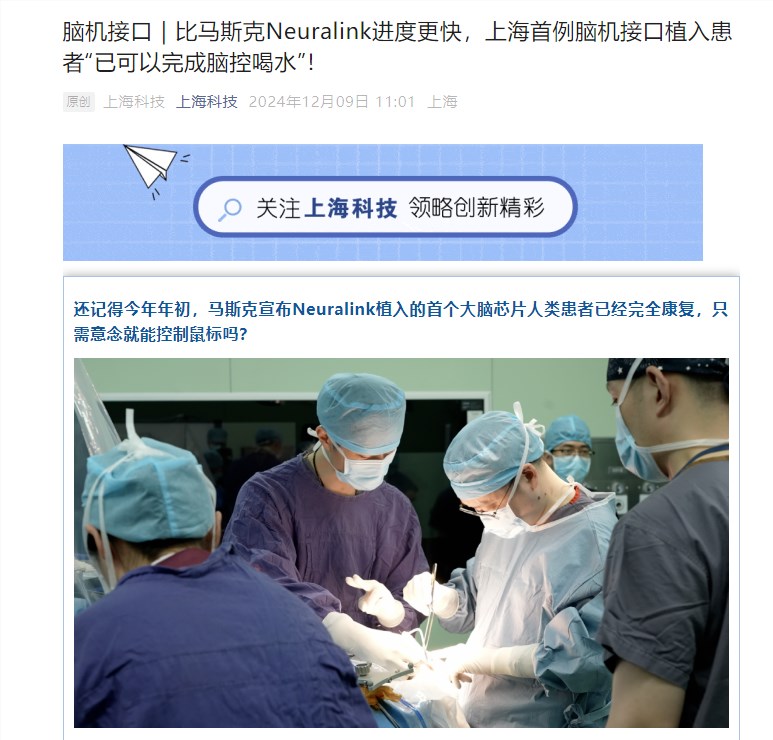The Neurosurgery Department of Shanghai Huashan Hospital recently made a major breakthrough and successfully completed a groundbreaking brain-computer interface clinical implantation trial, bringing hope to paralyzed patients to regain their autonomy in life. This technology, jointly developed by Brighton Medical Technology and the team of Professor Hong Bo of Tsinghua University, adopts a wireless and minimally invasive design, bringing great convenience and safety to patients. The success of the test marks China's significant progress in the field of brain-computer interface, and also sets a new milestone for the development of global brain-computer interface technology.
According to the Shanghai Municipal Science and Technology Commission, Shanghai has once again set a new record in medical technology. On November 6, the Neurosurgery Department of Huashan Hospital successfully completed a groundbreaking brain-computer interface clinical implantation trial, bringing hope to paralyzed patients to regain their autonomy in life.

This breakthrough technology was jointly developed by Brighton Medical Technology and the team of Professor Hong Bo of Tsinghua University. Four years after being paralyzed, patient Xiao Dong successfully collected nerve signals from the sensorimotor area of the brain through a coin-sized brain-computer interface device.
Unlike traditional invasive brain-computer interfaces, this system adopts a wireless minimally invasive design and causes almost no damage to brain cells. The patient was discharged from the hospital just one week after the surgery, demonstrating the sophistication and humanity of the technology.
The clinical trial was strictly approved by the Ethics Committee of Huashan Hospital and strictly followed the quality management standards for medical device clinical trials. As of November 15, Xiaodong was not only discharged from the hospital successfully, but also successfully completed the action of drinking water through brain control, setting a milestone for the practical application of brain-computer interface technology.
This breakthrough is not only a victory for medical technology, but also brings hope of a new life to millions of patients with physical disabilities.
The success of this trial not only heralds the huge potential of brain-computer interface technology in clinical applications, but also encourages scientific researchers to continue their efforts to bring good news to more patients. In the future, more paralyzed patients will be expected to regain their health through this technology. Gaining the ability to live is undoubtedly an important milestone in the history of medicine.